User Agreements Added to the Login Process
Available with the 2022.6.8 release of RapidIdentity Cloud, administrators can now add User Agreements or, Acceptible Use Policies or simply Important Announcements to be displayed to users during the user login process.
With this new feature, administrators can create one or more User Agreements that can contain anything from a traditional policy statement complete with a required user attestation/acceptance to a simple announcement that informs users of important information.
User Agreements is a new configuration item within the Authentication Policy configuration section of RapidIdentity.
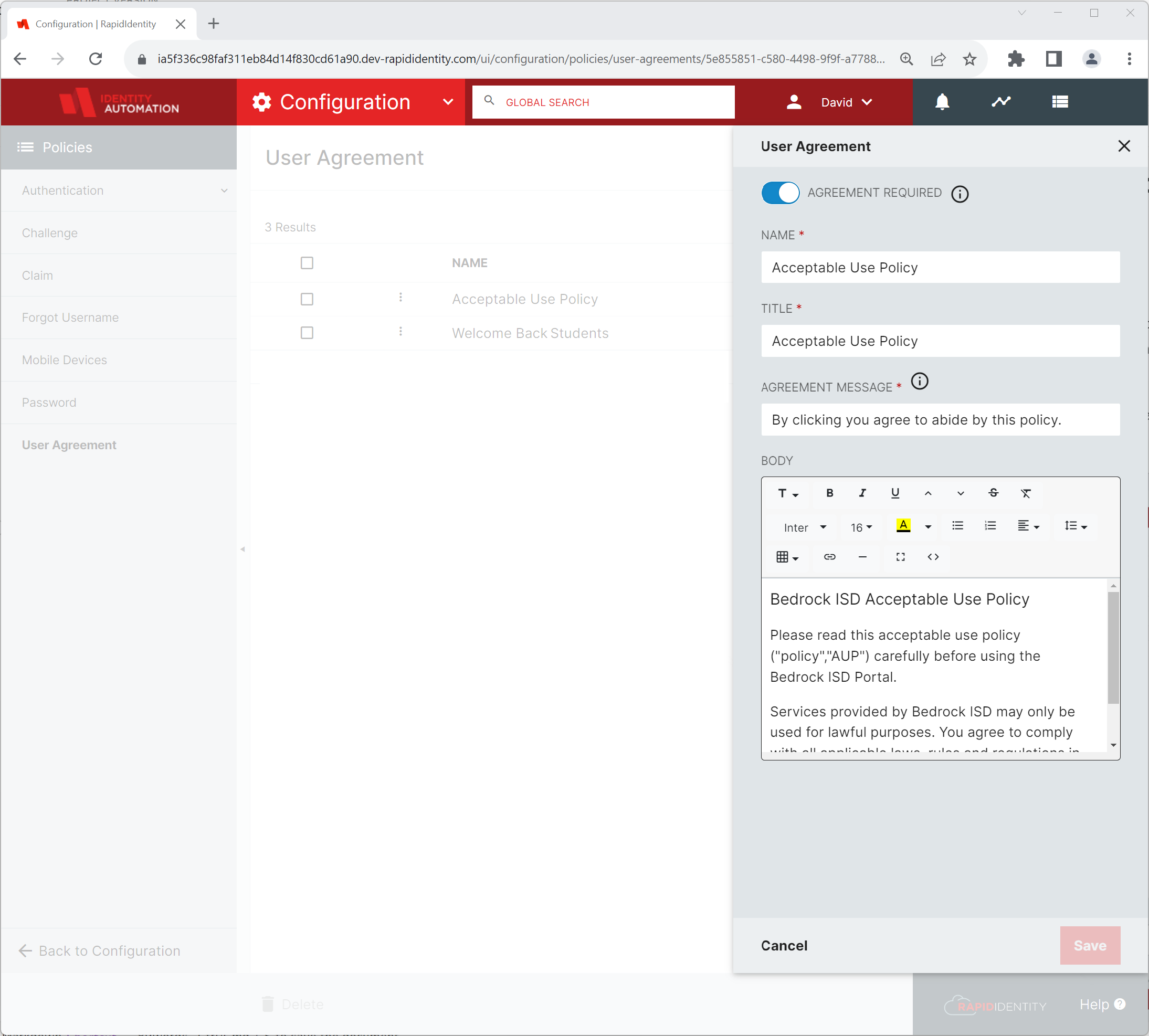
Once configured, User Agreements can be associated with Authentication Policies and will apply to all users associated with that policy based on the user's Role.
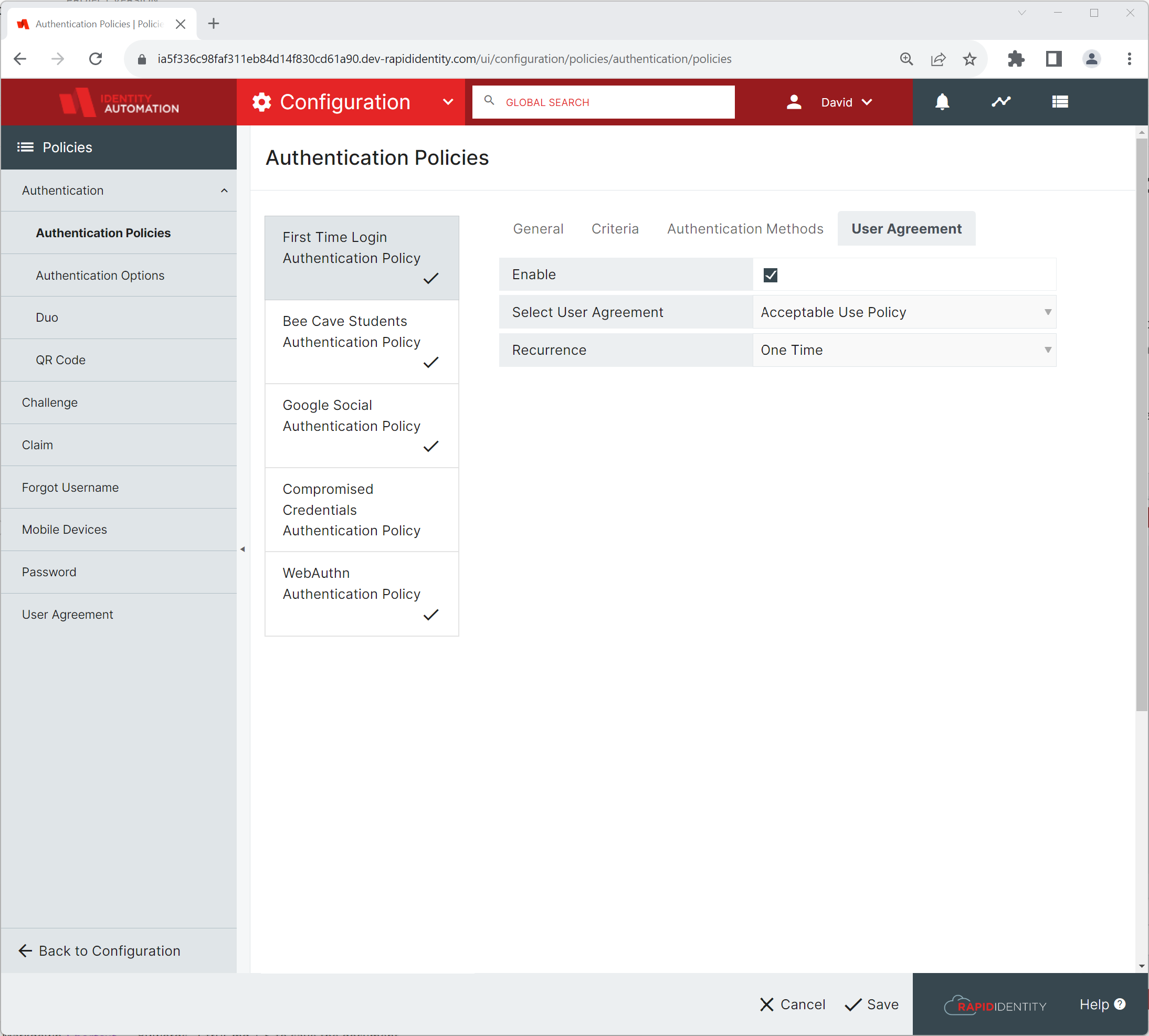
Roles has been added as Criteria for Authentication Policies. Roles can not be used in conjunction with LDAP Filters. To use the new Roles Criteria on an Authentication Policy you will need to remove any LDAP Filters.
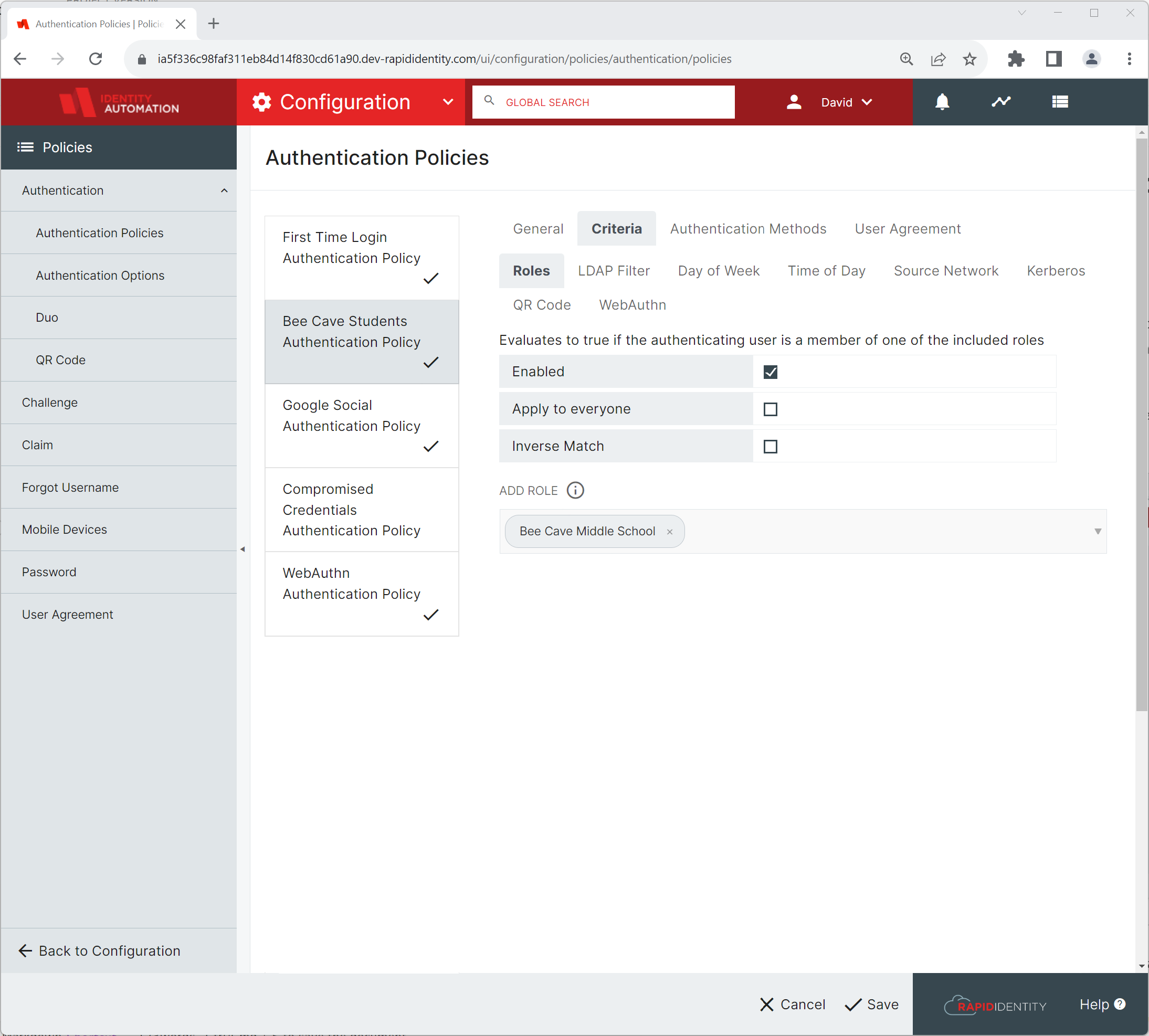
When a User Agreement has been added to an Authentication Policy, users will see the associated User Agreement after they have successfully authenticated but, before they are logged into RapidIdentity.
If Agreement Required has been selected on the User Agreement, users will need to acknowledge the agreement by checking the box before they can proceed.
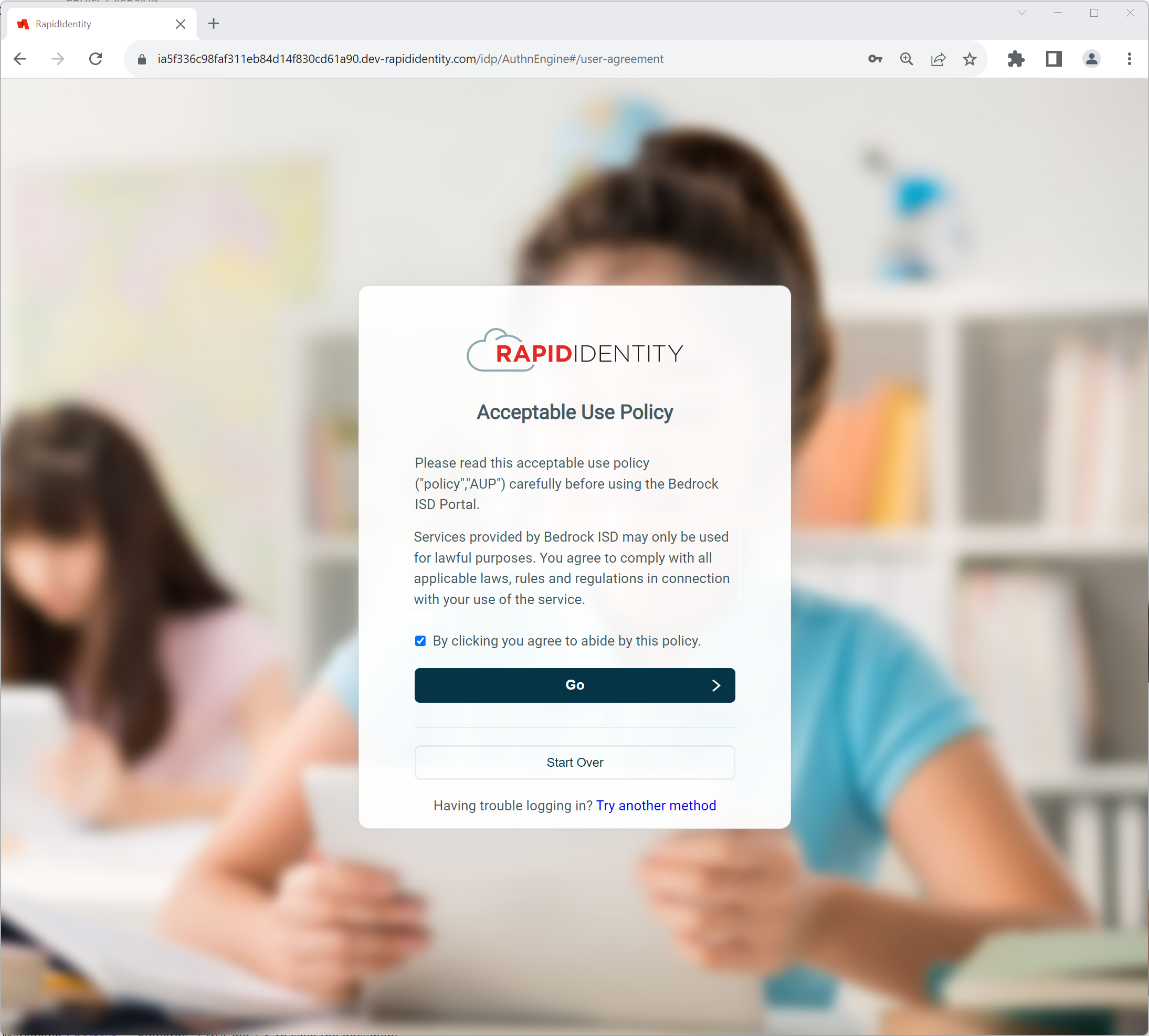
Although they are called User Agreements in RapidIdentity, this new capability can be used to provide any sort of notification to users as they log into RapidIdentity.
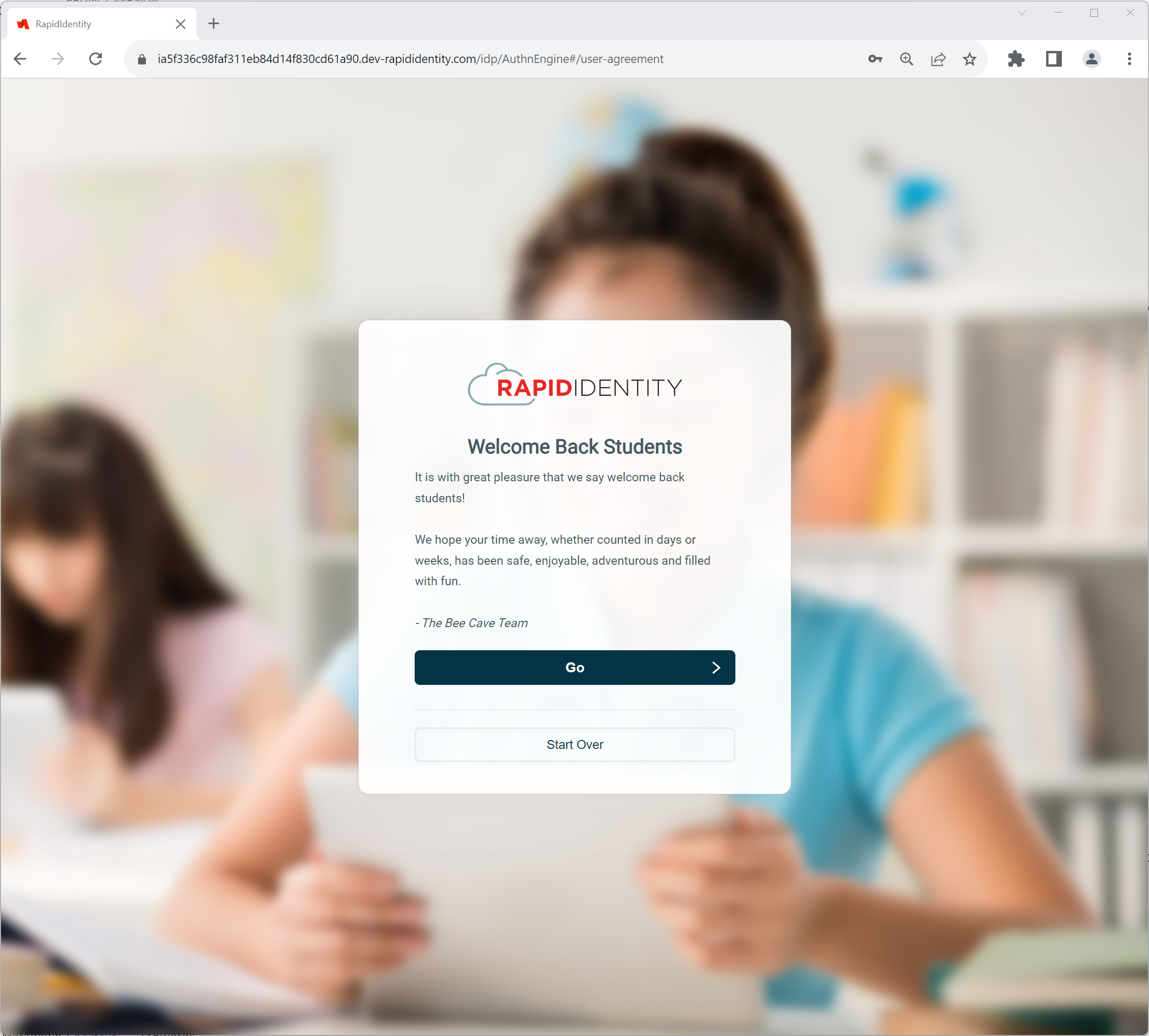
The User Agreement capability associated with Claim Policies is not affected by this new feature. User Agreements on Claim Policies are, currently, not the same as User Agreements on Authentication Policies.
In the future, Claim Policies will use the same User Agreements as Authentication Policies.